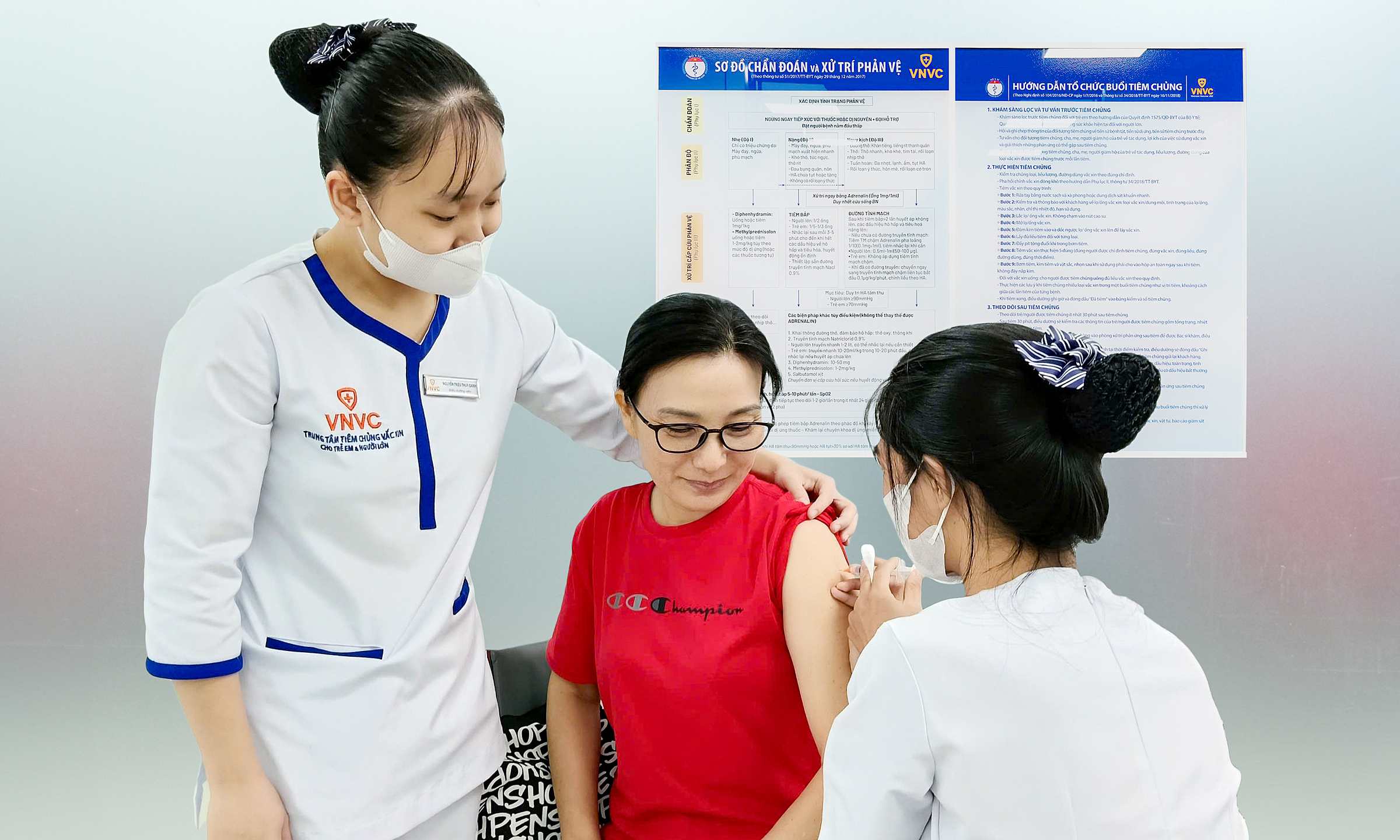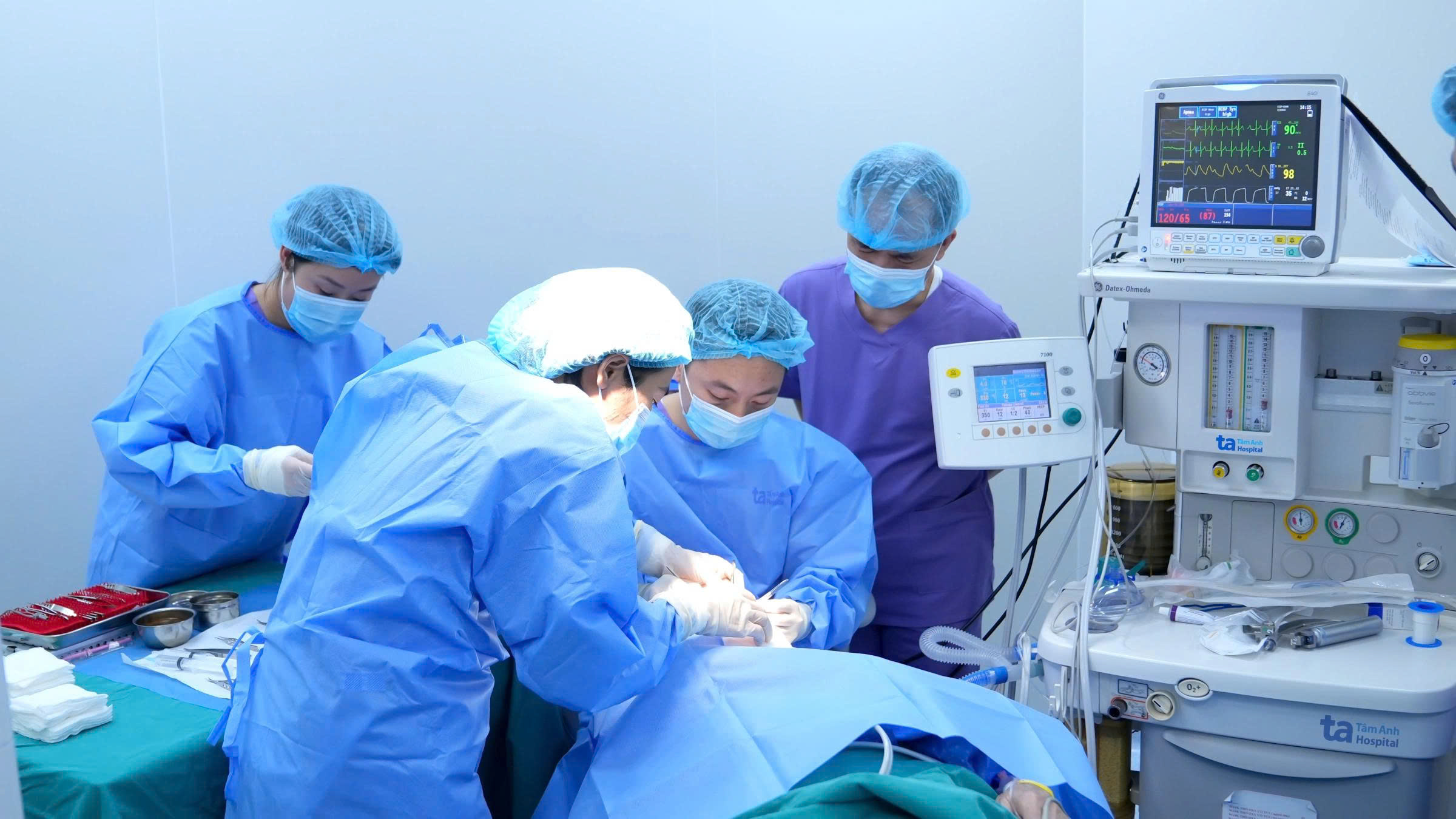Ngoc saw firsthand the devastating impact of shingles on a relative. The infection spread to their head, causing unbearable pain, sleeplessness, and declining health. The pain recurred whenever the weather changed.
While caring for her mother in the hospital, Ngoc observed another patient suffering from shingles that had spread across their ribs and back. The pain left the patient unable to eat or sleep, leading to both physical and mental exhaustion.
Determined to avoid a similar fate, Ngoc sought vaccination at the VNVC Vaccination Center. Her 72-year-old sister-in-law and 62-year-old husband also joined her for vaccination.
 |
Ngoc receives the shingles vaccine at the VNVC Vaccination Center. Photo: Khanh Hoa |
Ngoc receives the shingles vaccine at the VNVC Vaccination Center. Photo: Khanh Hoa
Similarly, Dung and his wife, both 58, received the shingles vaccine together. Dung shared that his brother had once contracted shingles but, instead of seeking medical attention, applied crushed mung beans to the blisters, resulting in an infection that required hospitalization. The delayed treatment led to chronic nerve pain that prevented him from performing even simple tasks, eventually causing depression.
Dung's awareness of shingles and its potential complications, gleaned from news reports and articles, prompted him and his wife to proactively seek vaccination as a preventative measure, especially given their increased vulnerability due to their age.
Shingles is caused by the varicella-zoster virus (VZV), the same virus responsible for chickenpox. After a chickenpox infection, the virus remains dormant in the nerve ganglia. It can reactivate as shingles when the immune system is weakened by factors such as age, underlying health conditions, immunosuppressant medications, or stress.
Early symptoms of shingles often include itching and burning sensations on the skin, followed by a rash and fluid-filled blisters on one side of the body. If these blisters break, the virus can spread and infect other areas of skin.
Dr. Pham Dinh Dong, Medical Manager of the VNVC Vaccination System, explains that the VZV can travel along nerves, affecting the brain, heart, and other organs. Without prompt diagnosis and treatment, serious complications can arise.
Research indicates that individuals who have had shingles have a 1.93 times higher risk of stroke within one month of the infection and a 1.62 times higher risk within the first year. They also face a 1.35 times increased risk of myocardial infarction (heart attack) within the first month compared to those who have not had shingles.
 |
A patient undergoing surgery to remove their left eye due to shingles complications. Photo: Tam Anh General Hospital |
A patient undergoing surgery to remove their left eye due to shingles complications. Photo: Tam Anh General Hospital
Dr. Dien advises maintaining a healthy lifestyle, which includes a nutritious diet, regular exercise appropriate for one's physical condition, sufficient sleep, stress management, and good hygiene, to prevent shingles. Vaccination is also a proactive and effective preventative measure.
In 10/2024, the VNVC Vaccination System began administering the Shingrix shingles vaccine. The vaccine is recommended for individuals aged 50 and above, as well as those 18 and older with underlying health conditions or weakened immune systems. The vaccination schedule consists of two doses administered one to two months apart, depending on the individual's health.
Two doses of the vaccine are over 97% effective in preventing shingles in people 50 and older and up to 87% effective in those 18 and older with weakened immune systems. It also reduces the risk of postherpetic neuralgia (nerve pain after shingles) and other complications by over 90%.
Chi Anh












